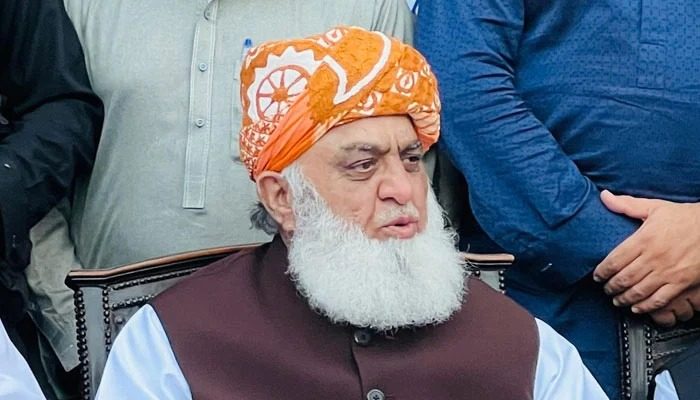
By our correspondent
ISLAMABAD: Maulana Fazlur Rehman, the influential leader of the Jamiat Ulema-e-Islam (F), has called for the urgent holding of general elections in Pakistan, emphasizing the critical need for political stability in the nation. Speaking to the media in Chiniot, he outlined his views on the current political climate and the role of opposition parties in shaping the country’s future.
In his remarks, Fazlur Rehman expressed discontent with the government’s reliance on protests as a means of governance. He pointed out the peaceful nature of their past demonstrations, stating, “In all the million marches we have conducted, not even a single flowerpot was broken.” This statement underscores his position that political movements can be conducted without resorting to violence or disruption, advocating for a more civilized approach to political discourse.
The veteran politician reiterated his insistence on the necessity for fresh elections, clarifying that the opposition parties, including his own, are not currently considering joining the government. This stance reflects a broader desire among opposition leaders to challenge the current administration’s legitimacy and to seek a mandate from the electorate.
Additionally, Fazlur Rehman addressed the issue of judicial integrity, specifically mentioning Chief Justice Qazi Faez Isa. He acknowledged the Chief Justice’s commendable tenure, subtly hinting at the importance of upholding judicial independence in the face of political pressures. This remark indicates his recognition of the judiciary’s role in maintaining balance within the political system, particularly during tumultuous times.
As calls for elections intensify, the political landscape in Pakistan remains dynamic, with various factions vying for influence and public support. Maulana Fazlur Rehman’s statements reflect not only his party’s aspirations but also a larger narrative about the need for democratic renewal and stability in the country. The upcoming months may prove pivotal as political entities navigate this complex environment, seeking to define their roles and establish a path toward a more stable governance structure.



